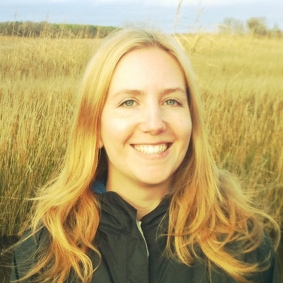Knauss legislative fellowships in Congress help build careers — and they're fun and educational. See our video and fact sheet for details.
Metthea Yepsen

Fellowship Institution:
NOAA, Restoration Center, Office of Habitat ConservationStart Year:
2013Metthea Yepsen worked in NOAA’s Restoration Center in the Office of Habitat Conservation as a policy and science coordinator on the office’s Deepwater Horizon oil spill restoration efforts. She assisted in ensuring that science and adaptive management are integrated into restoration initiatives.
Yepsen received an M.S. degree in environmental science and technology from the University of Maryland with a focus on wetland ecology and restoration. For her thesis research, she worked on a U.S. Department of Agriculture project to evaluate the effectiveness of federal wetland conservation practices and restoration in agricultural areas. To measure ecosystem services provided by wetlands, she compared plant communities in natural, restored, and farmland sites in several Mid-Atlantic states, including Maryland.
Yepsen’s background is different from that of many Knauss Fellows. She completed a bachelor’s degree in the humanities, studying diplomatic history. Her career path changed when she joined AmeriCorps in Hawaii. There she performed conservation work in natural area reserves, attached sling loads to hovering helicopters, and climbed through sharp lava rock. Those experiences sparked an interest in a career in environmental science that led her to return to college to take post-baccalaureate science classes and then to study native and restored ecosystems in graduate school.
Following her fellowship, Yepsen accepted a position at the Nature Conservancy.
Call for Symposium Presenters and Authors
The Chesapeake Rising: Innovative Law and Policy Solutions for Climate Adaptation in Coastal Communities symposium will explore key legal and policy considerations that affect climate adaptation strategies. It provides a unique opportunity for upper-level law students and early-career lawyers to present and publish their legal scholarship.
Program Announcements
-
-
Maryland Sea Grant has program development funds for start-up efforts, graduate student research, or strategic support for emerging areas of research. Apply here.
News and Blogs
Video Gallery
Sea Grant Film Explores a Diminishing Smithville
Smithville is a community on Maryland’s Eastern Shore, on the edge of the Blackwater National Wildlife Refuge. A century ago, Smithville had more than 100 residents. Today, it has four, in two homes: an elderly couple, and one elderly woman and her son, who cares for her.
Featured Fellow
Featured Research Project
Developing a habitat model for mysids, an important link in Chesapeake Bay food webs
Mysids are important mesozooplankton prey for many species of fish in Chesapeake Bay and are an important link in transferring energy from lower to upper trophic levels. Mysids also serve as biological vectors for benthic-pelagic coupling due to their diel vertical migration and omnivorous prey-switching behavior, which makes mysids important regulators of food web architecture. Despite their central role in coastal food webs, surprisingly little is known about mysid ecology and dynamics in Chesapeake Bay.
The Blue Crab: Callinectes Sapidus
An essential resource for researchers, students, and managers. Get your copy today!


©2025 Maryland Sea Grant. All rights reserved.
5825 University Research Court, Suite 1350 | College Park, MD 20740
Phone: (301) 405-7500 | Fax: (301) 314-5780 | Contact Us



